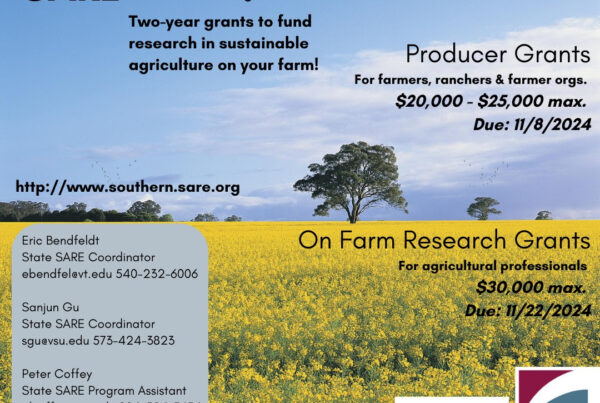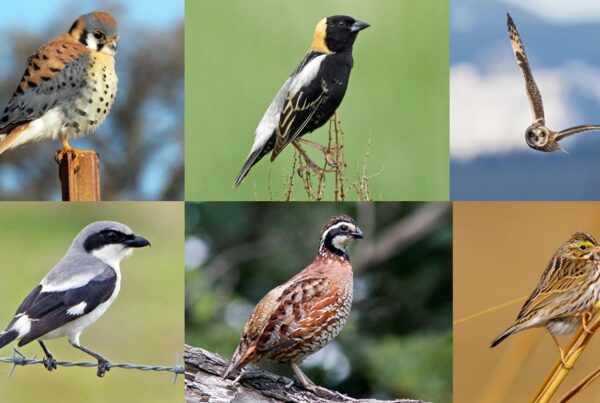 Alex Tuchman
Alex Tuchman
Alex Tuchman worked on several organic farms before beginning his agricultural career as the farm manager for the Loyola University Student Farm in his home-state of Illinois. After three years of building up the Student Farm and getting more connected with the regional biodynamic community, Alex headed to Floyd, Virginia to work alongside Gunther Hauk and Vivian Struve-Hauk at Spikenard Farm Honeybee Sanctuary in the Spring of 2014. As the Co-Director of the Honeybee Sanctuary, Alex is responsible for the care and development of the landscape, the bees, the biodynamic work, the educational programs, as well as many other administrative and organizational tasks. He is an active member of the Agriculture Section of the Anthroposophical Society and regularly gives beekeeping and agriculture workshops at Spikenard, as a guest teacher elsewhere, and hosts a webinar series in partnership with the Biodynamic Association.
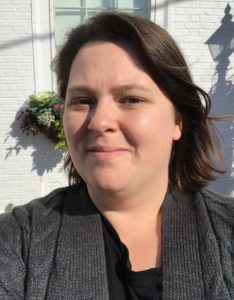 Alexis Russell
Alexis Russell
Alexis Russell is the Compliance Officer for Ayrshire Farm, as well as the Hub Leader for the Mid-Atlantic hub for the Savory Institute. While studying Conservation Biology, she realized that our food system has an outsized impact on our environment, and depending on the methods that impact could be positive or negative. She has spent the past 4 years working to make sure that Ayrshire and their growing network of partner farmers are farming not only sustainably, but regeneratively.
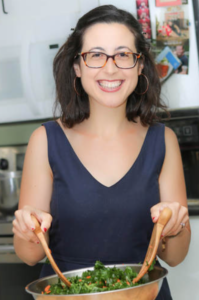 Amanda Terillo
Amanda Terillo
Amanda Terillo is a Registered Dietitian living in Central Virginia. She received her bachelor’s degree in nutrition from Long Island University in Brookville New York. After graduation she completed her dietetic internship at the University of Maryland in College Park. Throughout her career Amanda has provided medical nutrition therapy in both inpatient and outpatient setting.
While helping individuals improve their life with food, she learned about the role that agriculture and farming play in nutrition. She deepened this passion by pursuing a Masters degree in Sustainable Food Systems from Green Mountain College in Vermont. For her program she wrote a published a guidebook called Kitchen Confidence:Improve your Health, Save Money, Waste Less which is about creating nutritious meals while reducing food waste at home.
Amanda focuses on integrative and functional nutrition and works with the entire person, not just what they eat to achieve optimal health and wellness. She does not believe in diets or diet foods, but real food that nourish the body. She is an Integrative and Functional Nutrition Certified Practitioner through the Integrative and Functional Nutrition Academy. During her free time you can find Amanda working on her garden, beekeeping, taking care of her chickens and dogs, cooking, reading and hiking.
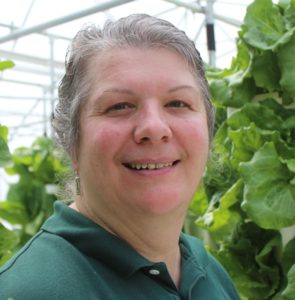 Amber Vallotton
Amber Vallotton
Amber Vallotton is an extension specialist in fresh produce food safety for Virginia Cooperative Extension at Virginia Tech. Amber oversees efforts statewide to coordinate produce food safety programming. Her efforts focus on developing on-farm food safety resources for trainers and direct or wholesale market growers, conducting on-the-ground mentoring for on-farm risk assessment, food safety plan writing, and GAP certification preparation. Amber is a certified lead trainer for the Produce Safety Alliance curriculum for the Food Safety Modernization Act’s (FSMA) Produce Safety Rule. She also is involved with FSMA efforts with the Southern Regional Center for education and outreach, and statewide implementation efforts in partnership with VDACS. Amber has been involved in a number of grant projects including a Virginia market assessment to determine buyer food safety requirements, in order to foster better alignment between produce grower practices and buyer needs. In 2018, she launched a comprehensive produce safety website, http://www.hort.vt.edu/producesafety/.
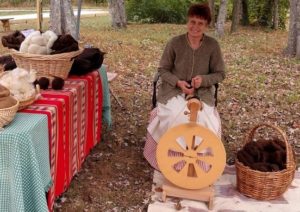 Anne Buteau
Anne Buteau
Anne Buteau lives with husband Dan, teenage daughter Elizabeth, horses, ponies, Jersey milk cows & offspring, Navajo Churro sheep, various pigs, plus the cat and two dogs on their small farm in Central Virginia. Originally from the UK, Anne always wanted a small holding where she could raise wholesome food for her family, and to sell to her friends and neighbors. She had no idea about the regulatory obstacles that would stand in the way of her fulfilling her lifelong dream.
In 2002 Anne became a member of Virginia Independent Consumers and Farmers Association, a group dedicated to fostering the availability of locally grown or home produced food products, and reducing the regulatory burden imposed on direct farm to consumer sales. Anne was President of VICFA from 2017-2019 and over the last 15 years has been Secretary, Vice President and a member of the board of directors. Anne works as “Natural Hoofcare” practitioner and educator, utilizing a holistic approach in the maintenance and rehabilitation of the equine hoof. www.hoofhelp.net
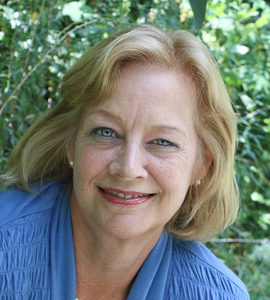 Barbara Pleasant
Barbara Pleasant
Barbara Pleasant has been covering organic gardening and self-sufficient living for more than 30 years. After starting out with Organic Gardening magazine, she eventually moved on to Mother Earth News, American Gardener and GrowVeg.com. Pleasant’s articles and books have garnered multiple awards from the Garden Writers Association and the American Nursery and Landscape Association. Her newest book, Homegrown Pantry – Selecting the Best Varieties and Planting the Perfect Amounts for What You Want to Eat Year-Round was a finalist for a 2018 INDIE Forward award and named a silver award winner by GardenComm. Pleasant lives in Floyd, Virginia, where she grows vegetables, herbs, flowers and fruits along with a few chickens, who all have names. Her website is barbarapleasant.com.
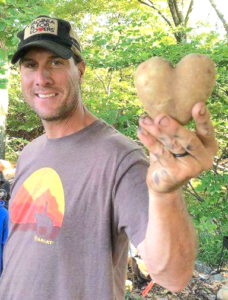
Ben Coleman
Ben and Carly Coleman have 4 “home-everything” kids who share the thrills and spills of farming on a daily basis with awe and wonder. Ben and Carly met while obtaining animal science degrees at NCSU. After working the land “conventionally” for several years, we soon realized that we were degrading the Earth with detrimental practices such as tillage, chemicals, and over-grazing out of sync with Nature. With just under 1000 contiguous acres in Bedford County, VA, we were forced to find a new, healthy way. Today we use 250 beef cattle, 15 A2 Jersey family cows, 24 pigs, 35 wool sheep, 3 goats, 6 horses, various birds and 1 dog as employees to groom and manage the land. The wildlife do their fair share of work too! We strive to balance our work of production farming with the Earth-friendly, primitive, wilderness skills and nourishing traditional diets of our ancestors who lived in much simpler times than our current fast paced modern culture. Here we find ourselves walking the Razor’s Edge, trying not to get cut!
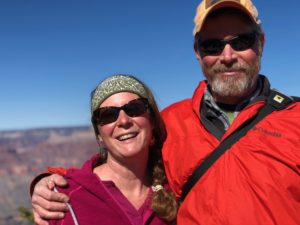 Brent & Anna Wills
Brent & Anna Wills
The Wills family owns Bramble Hollow Farm in the mountains of Bedford County, Virginia, and use managed livestock rotations, composts and soil-building techniques to diversify their pasture-based operation where they specialize in the production of heritage breeds of cattle, pigs, and chickens.
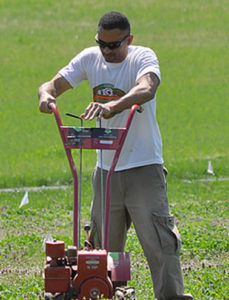 Cerruti Hooks
Cerruti Hooks
Cerruti Hooks is currently an Associate Professor and Extension Specialist at the University of Maryland. He holds a MS degree in Weed Science from North Carolina State University and as PhD in Entomology from the University of Hawaii at Manoa. He has 20 years of experience using plant diversification including cover cropping tactics to manipulate weeds, nematodes, insects, spiders and more recently pollinators and greenhouse gas emissions. His research specialty is conservation biological control and ecological pest management. He conducts research in conventional and organic farming systems and covers agronomic and vegetable crops.
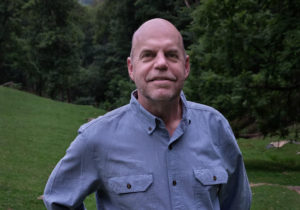
Charles D. Thompson, Jr.
Charles D. Thompson, Jr. is Professor of the Practice of Cultural Anthropology and Documentary Studies at Duke University. The common thread through all of my work — whether as a professor, author, filmmaker, or photographer — is a deep concern for people doing their all to have a voice in our agricultural systems. I try to lead my students and broader audiences into conversations with those who are all too often invisible to those who eat.”
Thompson holds a Ph.D. in religion and culture from UNC-Chapel Hill, with concentrations in cultural studies and Latin American studies. He also holds an M.S. degree in Agricultural Education from NC A&T State University. His particular interests include farmworkers, immigration, agriculture, Appalachian Studies, place, and pilgrimage. His methodology includes oral history, ethnographic writing, documentary filmmaking, and collaborative community activism. A former farmer, Thompson remains concerned about issues affecting laborers within our food system. He has written about farmworkers, and he is an advisory board member of Student Action with Farmworkers, the Duke Campus Farm, and other Duke food and agriculture initiatives.
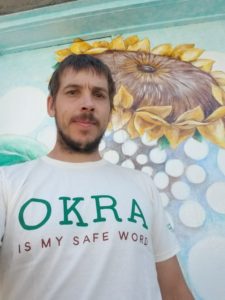
Chris Smith
Chris Smith is the executive director of The Utopian Seed Project and long time employee at Sow True Seed. As an enthusiastic grower and permaculturalist from a green-thumbed family, Chris has immersed himself into the world of seed and southern growing since moving to Asheville NC in 2012. Chris is experimenting with landraces, selective seed saving, crop and variety trials, seed grow outs and edible seed oils. Chris is an active garden writer and has a small obsession with okra. In 2019 he published his first book, The Whole Okra: A Seed to Stem Celebration.
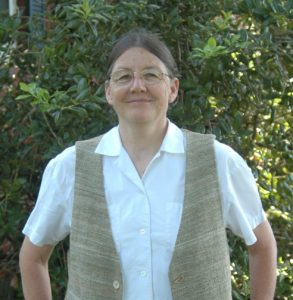
Cindy Conner
Cindy Conner researches how to sustainably grow a complete diet in a small space at her home near Ashland, VA, and has produced videos on cover crops and garden planning. Cindy, a former market gardener, was instrumental in establishing the sustainable agriculture program at J. Sargeant Reynolds Community College in Goochland, VA and taught there from 1999-2010. She is the author of Grow a Sustainable Diet and Seed Libraries. Her newest interest is to go from seed to garment with cotton and flax/linen grown in her garden. HomeplaceEarth.com
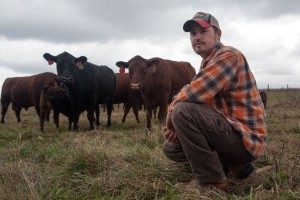
CJ Isbell
Third generation farmer, co-owner and managing member of Keenbell farm located in Hanover County, Virginia. Specializing in raising grass-fed/finished beef, pasture raised pork, chicken, turkey, eggs, and specialty non-gmo food grade grains. Former state farm mentor coordinator for the Virginia Beginning Farmer and Rancher coalition, and member of the inaugural class of VALOR.
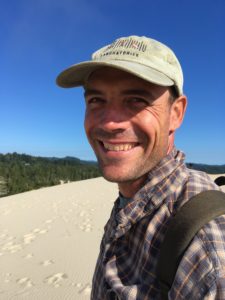 Daniel Sweeney
Daniel Sweeney
Daniel is the crop adviser at Seven Springs Farm. He has farmed throughout the country and has worked as a technical adviser for several certifiers and non-profits. Daniel’s primary agricultural interests are perennial fruit crops and biological pest and disease management. Daniel is fortunate to spend his days working with farmers across the country.
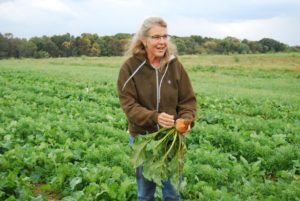 Ellen Polishuk
Ellen Polishuk
Ellen is a farm consultant, writer and workshop leader. She takes her 35 years of biological vegetable farming experience to help growers around the country. She conducts her production and efficiency consulting through Plant to Profit, and her farm business and profitability consulting through her association with Kitchen Table Consultants. Ellen is the co-author of Start Your Farm, and writes the farmer to farmer profile column for Growing For Market magazine. She lives in the Agricultural Reserve of Montgomery County, Maryland with her husband Dan, where she gardens like crazy.
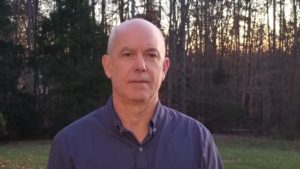 Eric Capps
Eric Capps
Eric Capps received his bachelor’s degree in biology from Christopher Newport College and a master’s in horticulture from Virginia Tech and has made a career of working on and for the land. Eric spent 10 years as the vineyard and farm manager for the Williamsburg Winery. He also worked for Virginia Cooperative Extension as a viticulture extension and research assistant at the Virginia Tech research station in Winchester, Virginia.
Eric later moved to the Virginia Department of Conservation and Recreation to become a nutrient management coordinator, reviewing and approving nutrient management plans for permitted concentrated animal feeding operations. He also served as the environmental manager for the Erosion and Sediment Control Training and Certification and the Construction General Permit Programs.
Eric joined the United States Department of Agriculture’s Natural Resources Conservation Service (NRCS) in 2012, working as a soil conservationist at the Chatham office in Pittsylvania County. He moved to the Rocky Mount office in 2015 to serve as the district conservationist and provides technical and financial assistance to agricultural producers in Franklin and Henry counties.
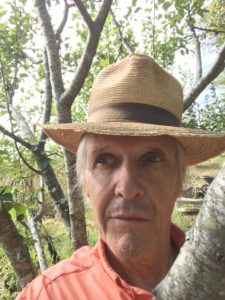
Frank Holzman
I have worked in organic horticulture and small scale sustainable farming since the early 1970’s. My work, mainly with my non profit REAP, has allowed me to work in various parts of the US and seven countries, Southeast Asia, Central and South America. I utilize Biodynamic methods combined with Permaculture design and IPM. My role is to regenerate land and teach others how to develop balanced ecosystems and how to become good stewards of the land. My workshop is based on information from my book, Radical Regenerative Gardening and Farming.
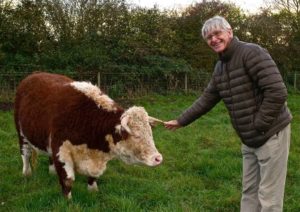
Gunther Hauk
Former a college and also a Waldorf gardening teacher, practicing Biodynamic gardening and farming for 45 years. Co-founded The Pfeiffer Center for Biodynamic Agriculture in Chestnut Ridge, NY in 1996 and Spikenard Farm Honeybee Sanctuary in 2006. In 2002 my book “Toward Saving the Honeybee” was first published, challenging conventional beekeeping methods as also responsible for the decline of the honeybees.
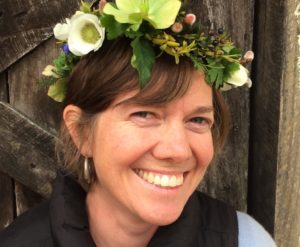
Gwynn Hamilton
Gwynn and her husband Bert Webster are celebrating their sixteenth year of growing at Stonecrop Farm in Newport, Virginia. What began as a vegetable farm with a few flowers has shifted to a flower farm with a few vegetables. Together with a crew of four to five they provide weekly bouquets for a 50 share CSA, all the pieces for approximately 40 weddings a year, and flowers for special events and two farmers markets a week.
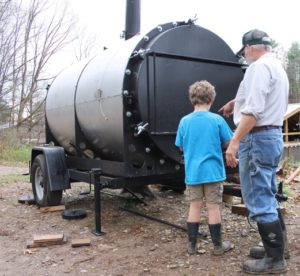
Harry Groot
Four generations of family have been involved in managing our Montgomery County farm. It’s dedicated to Heritage Breed Conservation, Sustainable Forest Management, and Permacultural agriculture production. We’ve engaged in numerous relationship marketing ventures over the years and are currently vendors at the Blacksburg Farmers Market under the “All Things Sheep” banner. Harry began working with biochar production and on-farm research in 2010. He also works with the Minneapolis environmental think tank, Dovetail Partners, Inc., which provides authoritative information about the impacts and trade-offs of environmental decisions, including consumption choices, land use, and policy alternatives. His focus areas are biochar and its role in climate change mitigation, collaborative business models, and rural development. Dovetail’s extensive library, including lead and co-authored reports on biochar and responsible consumption, can be accessed at: www.dovetailinc.org/Dovetail Reports.
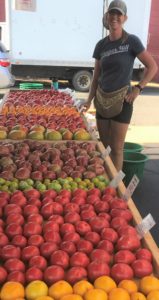
Holly Hammond
Holly Hammond has co-owned and operated Whisper Hill Farm since 2010. Holly grew up on a 160 acre u-pick vegetable farm in Southeast Arizona. After getting her degree in business management and owning a small catering company for several years, she realized how much she missed the joys of growing vegetables.
Through a series of events, Holly and her husband James, moved to the east coast and worked at Waterpenny Farm in 2009. In 2010, they found a landowner willing to rent them farmland and infrastructure. They vegetable farmed for 5 years in Culpeper County, where their business grew and sustained them full-time on the farm. After an unfortunate land decision by their landowner, Holly and James moved their entire farming operation to Scottsville, where they were able to lease certified organic land. Since that time, Whisper Hill has continued it’s profitable trend, attending 3 Saturday Farmers Markets (Charlottesville, South of the James (Richmond), and Nelson Farmers Market), and a mid-week market in Charlottesville.
Holly is a hands-on farm manager, working alongside their crew of 5 people, with an eye towards efficiencies and working smarter not harder.
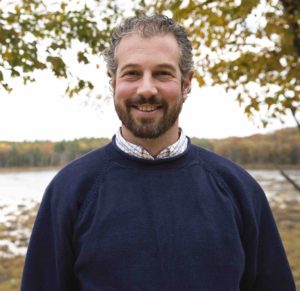
Ian McSweeney
Ian’s career and his life’s work has been focused on the human connection to soil and food. Participating in farmland and food systems initiatives, as a consultant to a number of organizations, locally, regionally and nationally. Ian has served on zoning, conservation, planning and agricultural Boards and Commissions, County Conservation District, Regional Planning Commission and University Extension Coverts Program. Ian and his wife Liz protected their own small NH farm with a conservation easement, manage their forest as a Certified Tree Farm, lease their farmland to a Certified Natural vegetable grower, keep bees, mange habitat with a deep ecological focus, and spend as much time as possible with their two young boys, Dylan and Bridger.
I draws from his experience: as a social worker focused on developing and operationalizing outdoor experience based education programs and later sought more direct work with the connections to soil and food in real estate by founding a brokerage and consulting company to focus on prioritizing conservation, agriculture and community within typical land development, as Director of the Russell Foundation, a private foundation focused on assisting landowners and farmers through customized approaches to farmland ownership, conservation, management and stewardship working directly with 65 land conservation groups, 40 townships, and local, state and federal partners to assist 60 farms, complete 28 lease and/or management agreements and complete more than 100 farmland focused projects protecting over 12,000 acres and raising over $16,000,000, all aimed towards providing benefit to farmland, farmers, communities, and the local agrarian economy, as broker/founder of real estate and consulting companies that bring about conservation and agriculture planned development and redevelopment, and as a steward of land and relationships. Ian is deeply passionate and committed to bring about innovation to evolve farmland conservation work to holistically address equitable, secure, and affordable ownership and tenure arrangements, farm viability, conservation, and community resilience to ensure regenerative diversified food production that benefits soil, human, and community health. As Director of Agrarian Trust, Ian is now leading national innovations in agricultural land and assets ownership, access and tenure, stewardship, farm viability, and conservation work.
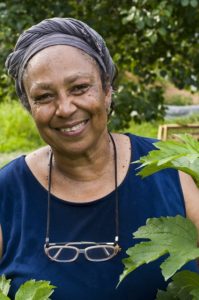 Ira Wallace
Ira Wallace
Ira Wallace is a worker/owner of the cooperative Southern Exposure Seed Exchange where she coordinates outreach, education, and new seed grower contracts. Southern Exposure helps people keep control of their food supply thru seed saving and sustainable gardening. Ira serves on the boards of the Organic Seed Alliance, and the Virginia Association for Biological Farming. Ira is an organizer of the Heritage Harvest Festival at Monticello, [www.HeritageHarvestFestival.com]. Her books, The Timber Press Guide to Vegetable Gardening in the Southeast and Grow Great Vegetables in Virginia (March 2020) available online and at booksellers everywhere.
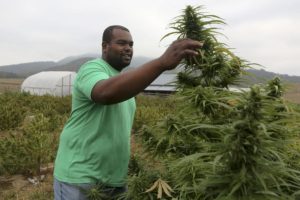 Jabari Byrd
Jabari Byrd
Jabari Byrd is an industrial hemp specialist here in state of Virginia. He is from the inner city of Richmond, VA. He started working with hemp (Cannabis sativa L.) in 2016 with his advisor, Dr. John Fike, while completing a Master’s Degree in Crop and Soil Environmental Science at Virginia Tech. As George Washington Carver scholar, Mr. Byrd learned how to grow and process industrial hemp for fiber, seed oil, and medicinal purposes. Mr. Byrd is an advocate of hemp as he has witnessed people have relief from issues such as chronic pain, childhood epilepsy, and overall discomfort to a variety of health conditions. Mr. Byrd currently serves as a hemp consultant helping bring farms back to life through CBD flower production. He is also co-owner of Rise and Shine Botanicals Cafe’ that sells a variety of herbal and CBD-based products and pastries.
Jill Auburn
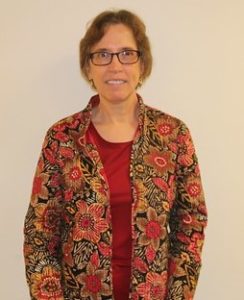 Jill Shore Auburn retired in 2017 from the USDA’s National Institute of Food and Agriculture in Washington, DC, where she spent 19 years leading research, extension and education programs in sustainable agriculture, beginning farmers, community development, local food systems, and related topics. Before USDA she was associate director of the statewide sustainable agriculture program at the University of California, based in Davis, CA, where she earlier received her Ph.D. She lives in Richmond, Virginia, and volunteers for the Virginia Master Naturalist program as well as the VABF policy team.
Jill Shore Auburn retired in 2017 from the USDA’s National Institute of Food and Agriculture in Washington, DC, where she spent 19 years leading research, extension and education programs in sustainable agriculture, beginning farmers, community development, local food systems, and related topics. Before USDA she was associate director of the statewide sustainable agriculture program at the University of California, based in Davis, CA, where she earlier received her Ph.D. She lives in Richmond, Virginia, and volunteers for the Virginia Master Naturalist program as well as the VABF policy team.
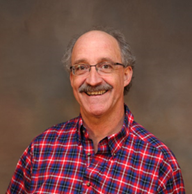
Dr. Jim Chamberlain
Dr. Jim Chamberlain, a research scientist with the USDA Forest Service, is a global expert on non-timber forest products management, production and valuation. Jim received his Ph.D. from the College of Natural Resources at Virginia Tech in 2000, with a focus on managing forests for non-timber forest products. He leads research to quantify and articulate the ecological and economic impacts of harvesting edible and medicinal forest products. He has published extensively on the subject, having recently produced a comprehensive national assessment of these products, relative to climate change.
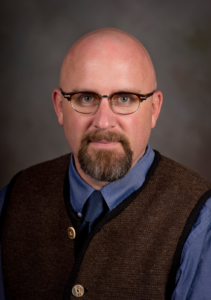 John Munsell
John Munsell
John is an Associate Professor in the Department of Forest Resources and Environmental Conservation at Virginia Tech. He received an M.S. and Ph.D. from the State University of New York and Bachelor’s degree from Tulane University. John is an extension specialist who studies private forest and farm stewardship, agroforestry and whole farm planning, and collaborative conservation. The places he works ranges from Appalachia to Cameroon. John is author of more than 40 research publications, co-author of a book on community food forests published by Chelsea Green, director of the Appalachian Beginning Forest Farming Coalition, and co-leader of the Non-timber Product Output Report (NTPO) system for the US Forest Service. He also oversees forest management projects for the Department of Interior’s Bureau of Land Management and the US Department of Defense. John is Past-President of the Association for Temperate Agroforestry, most recent winner of the association’s education and outreach award, and Associate Editor for the journal Agroforestry Systems.
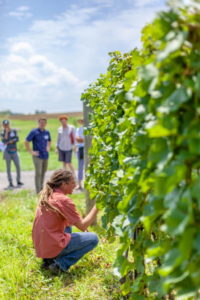
Joseph Brinkley
Joseph Brinkley is the Director of Vineyard Operations for Bonterra’s organic and biodynamic vineyards in California, producing for America’s largest organic wine brand. In 2017/2018, Joseph led a study in partnership with Pacific Agroecology on the effects of farming practices on organic carbon storage in soil and aboveground plant tissue. He was recently featured in the series ‘It Starts with Wine’ and nominated for the 2019 Wine Star ‘Social Visionary’ award.
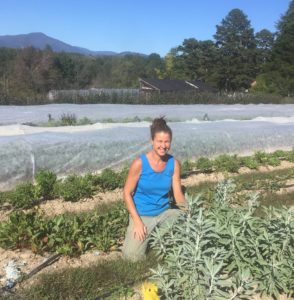
Katherine Herman
Sustainable farmer, herbalist, & fermenter, Katherine Herman is founder & owner of Gathered Threads in Nelson County, Va. Gathered Threads is a small family-based farm focused on the production of medicinal and culinary herbs – fresh, dried (teas, spice blends, bulk herbs), plants, and herbal body products. We also produce a large selection of fermented vegetables cultures for our outlets (csa, market, events, wholesale).

Katie Commender
Katie Commender started her agroforestry career in 2012 as an Agroforestry AmeriCorps VISTA at Appalachian Sustainable Development (ASD). As a VISTA volunteer, she trained hundreds of beginning forest farmers and developed a multifunctional riparian forest buffer program with U.S. Fish and Wildlife Service to help dozens of farmers merge conservation and production goals across 25 acres in southwest Virginia. As the lead on a Virginia NRCS Conservation Innovation Grant project, Katie authored revisions for riparian forest buffer practice standards to include planting and harvesting of useful fruit, nut, and flowering trees and shrubs. In 2016, Katie co-developed the NTFP Calculator with the National Agroforestry Center and co-edited the Temperate Agroforester newsletter. She also received her Master’s in Forestry from Virginia Polytechnic Institute and State University, where she served as the graduate teaching assistant for the agroforestry class and researched preferences and intentions for riparian buffer adoption and retention. Today, as ASD’s Agroforestry Program Director, Katie continues to teach the next generation of forest farmers as a founding member of the Appalachian Beginning Forest Farmer Coalition. In 2017, she founded ASD’s Appalachian Harvest Herb Hub to help medicinal herb farmers sustainably grow, process, and market herbs to premium domestic and international markets.
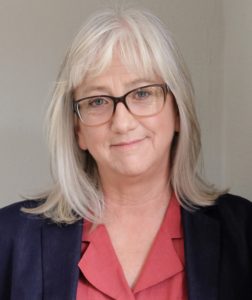
Laura Lengnick
Laura is an award-winning soil scientist with 30 years of experience working as a researcher, policy-maker, educator and farmer to put sustainability values into action in food systems. Her 2015 book, Resilient Agriculture: Cultivating Food Systems for a Changing Climate, examines climate change, resilience and the future of food through the adaptation stories of leading sustainable farmers and ranchers growing food across the U.S. Laura is founder and CEO of Cultivating Resilience, LLC, a firm that works with organizations of all kinds to integrate resilience thinking into operations, assessment and strategic planning.
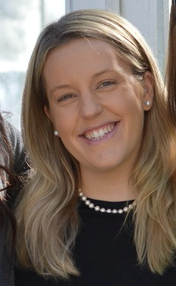
Laura K. Strawn
Laura K. Strawn is an Assistant Professor and Extension Specialist of Produce Safety in the Department of Food Science and Technology at Virginia Tech. She holds three degrees in Food Science with food microbiology emphases, as well as minors in Epidemiology and Molecular Microbiology: a Ph.D. from Cornell University under Dr. Martin Wiedmann, a M.S. from the University of Florida, under Dr. Michelle Danyluk, and a B.S. from the University of California, Davis. Her research program at Virginia Tech focuses on the microbial safety of fresh fruits and vegetables; specifically, the ecology, evolution, and transmission of foodborne pathogens in the produce field to fork continuum. Additionally, Dr. Strawn works directly with produce stakeholders on various produce safety issues, as well as teaches a cadre of food safety curriculums. She leads Virginia Cooperative Extension’s educational efforts on the Food Safety Modernization Act’s Produce Safety Rule including teaching Produce Safety Alliance Grower Trainings and performing On-Farm Readiness Reviews. Dr. Strawn is also the Lead of Applied Research for Virginia’s Fresh Produce Food Safety Team, Extension Team Leader for the Delmarva Food Safety Task Force, and invited-member of the Radiation Advisory Board for the Commonwealth of Virginia. Professional service includes involvement in Phi Tau Sigma (Board of Directors), International Association for Food Protection, and the Institute of Food Technologists.

Maggy L. Gregory
Maggy L. Gregory is a partner with the Chatham law firm of Adams & Fisk, PLC, where she focuses on trust and estate planning and administration and business general counsel and succession planning. She also serves as the national chair of the American Bar Association’s Small and Solo Practitioner’s Agriculture Law Subcommittee. Maggy received her undergraduate degree from the University of Virginia and her juris doctor from The College of William and Mary. In addition to her professional career, Maggy is the co-owner of Gregory Family Farms, raising beef cattle and meat lamb for local direct markets.
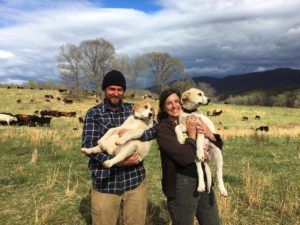 Mark & Allison Angelini
Mark & Allison Angelini
Mark has been immersed in the field of regenerative agriculture, ecological design, and edible landscaping since 2008 when he left behind a college education and the promise of a career sitting in front of computers, to pursue an auto-didactic, life-long education of connection to land and nature. From 2010 to 2017 he was co-founder of Roots to Fruits Ecological Design, a southeast Michigan-based design, consulting, and education firm that worked with homeowners, farmers, and homesteaders to create ecologically vibrant and abundant landscapes. Roots to Fruits worked on over 120 landscapes, homesteads and farms across Michigan, Wisconsin, Illinois, and Pennsylvania, and taught all throughout Michigan and Vermont.
In 2016 he and his wife Allison created Mountain Run Permaculture to continue this work from their new home at Mountain Run Farm in Sedalia, Va. Here they are developing and managing beyond-organic integrated orchard, vegetable, medicinal herb, livestock, and home food production systems. Their focus is on creating biologically rich soils, nutrient-dense foods and medicines, and low-input, replicable regenerative production systems for profit and food sovereignty. They also do consulting, design and education in the region, namely through their collaboration with the Bedford Area Family YMCA, where they teach hundreds of K-5 children gardening, ecology, cooking, and more.
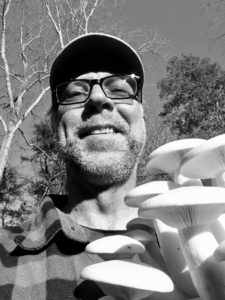
Mark Jones
Mark Jones is the owner and mycologist at Sharondale Mushroom Farm in Cismont, VA. Sharondale grows the highest quality certified organic mushrooms and organic mushroom spawn. Sharondale Mushroom Farm is a United Plant Savers Botanical Sanctuary. Sharondale offers workshops, tools and supplies for mushroom and microbial cultivation.
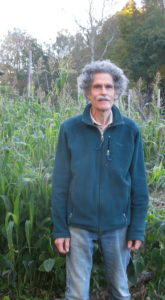
Mark Schonbeck
Mark Schonbeck has worked for 32 years as a researcher, consultant, and educator in sustainable and organic agriculture. He works one-on-one with farmers and homesteaders, taking a site-specific approach to soil test interpretation and recommendations. He has led or participated in several VABF on-farm research projects, collaborated with VABF and National Center for Appropriate Technology (NCAT) to help USDA NRCS conservation programs better serve organic producers, and most recently with Organic Farming Research Foundation (OFRF) in reviewing recent (2000-current) research on organic systems, climate resilience, and carbon sequestration in agriculture. He has played a major role in developing a series of science-based practical Guides and webinars on Soil Health and Organic Farming, Guides, available at http://ofrf.org/. Mark also serves as policy liaison between VABF and National Sustainable Agriculture Coalition (NSAC), and writes the policy update column for the monthly VABF e-newsletter.

Mary Cush
We should be comfortable in our bodies. With proper alignment and movement skills, we should be able to perform all of our farming duties without experiencing pain at the end of the day. I enjoy inspiring others to improve their wellness by motivating with a good sense of humor and individual attention based on sound anatomy principles. My training has focused on yoga that is accessible to everyone. It’s The People’s Yoga Professional Courses and Certifications. I teach private classes that address individual needs, community yoga at the Pamplin Depot and have started prison yoga program at Nottoway Correctional Center.
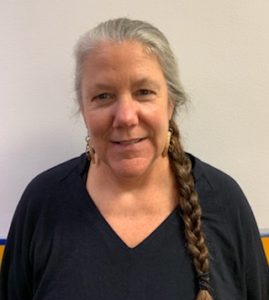
Mary Jo Boone
Mary Jo Boone has been the Executive Director/CEO of the Bedford Area Family YMCA for 18 years and has been with the YMCA Movement for 23 years. She received a Bachelor’s Degree from the University of Delaware and a Master’s Degree from Clemson University. During her 18 years as CEO of the Bedford Y, she has been involved with and sat on the board of many community organizations, including her current board positions with Bedford Memorial Hospital and Bedford Area Chamber of Commerce. She has written and received several very competitive Federal and State Grants to work with students from kindergarten to high school on various health, wellness, enrichment and outdoor education programs. She is most proud of, and finds the most joy with, the current state grant enabling the Y to work with elementary school-age students in the outdoor classroom, including the teaching garden and teaching kitchen.
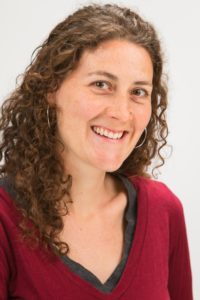 Maureen McNamara Best
Maureen McNamara Best
Maureen McNamara Best is the Director of Strategic Planning with Local Environmental Agriculture Project (LEAP), a 501c3 non-profit based in Roanoke, VA. LEAP’s mission is to nurture healthy communities and resilient local food systems. To tackle the complicated problems in our food system, LEAP works closely with community members, organizational and government partners, and farmers. LEAP programs include LEAP Farmers Markets (West End and Grandin Village), LEAP Mobile Market, LEAP Farm Share, Healthy Food Incentives (SNAP, Medicaid, WIC, Senior), The LEAP Kitchen, and regional food system development. Maureen is also a co-lead of Virginia’s statewide Nutrition Incentive Network, Virginia Fresh Match, and oversees the USDA Food Insecurity Nutrition Incentive (FINI) grant on behalf of regional organizations, farmers markets, and grocery retails across the Commonwealth.
Maureen has over fifteen years of experience working with food, agriculture and community. Her work and professional experience is wide-ranging and includes teaching high school agriculture in Raleigh, NC, working with migrant farmworkers in eastern NC and in the Colorado plains, doing food safety inspections in Boulder CO, and studying the economic viability of the local food system in Northern Colorado. Maureen has a MA in Anthropology from Colorado State University and undergraduate degrees in Agriculture Education, Spanish, and Anthropology from North Carolina State University. You can contact Maureen at [email protected].
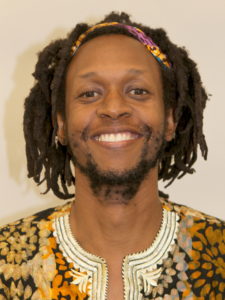
Michael Carter Jr.
Michael Carter Jr. works with Virginia State University Small Farm Outreach program as the Va. Small Farm Resource Center Coordinator. He is a fellow in the cohort IV of Virginia Agriculture Leaders Obtaining Results (VALOR), serves on the board of directors for the Virginia Association of Biological Farmers (VABF) and a member of the Minority and Veteran Farmers of the Piedmont. He has worked as an organic agriculture consultant in Israel, Kenya and Ghana and in his return back to the U.S. as a fifth generation farmer on a century farm in Orange County, Virginia began growing African/ Caribbean vegetables. Through his Africulture and Hen Asem agricultural and cultural education platforms, he teaches how to grow and market ethnic vegetables in the commonwealth and along the east coast.

Michael Happ
Michael comes from a 7-generation farm family in Illinois. Though farming was not his calling, Michael works to make it easier for farmers to be good stewards of the land, staffing NSAC’s Conservation, Energy, and Environment Committee and Climate Change Subcommittee. Prior to joining NSAC, Michael worked at the National Wildlife Federation and in the office of former Representative Tim Walz (D-MN). Michael is a graduate of Carleton College in Northfield, Minnesota, where he studied Political Science and Education.
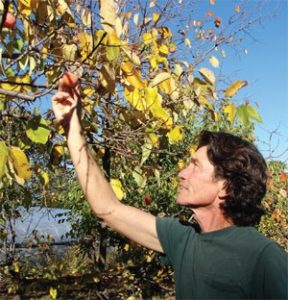 Michael McConkey
Michael McConkey
I started the nursery, Edible Landscaping, in 1979. I love to work with the plants and have an extensive knowledge of attributes and short comings of many plants with edible in their description. I enjoy speaking and make the experience as fun and educational as possible. I have a history of introducing many edibles and popularizing them through our catalog, web site and garden center and orchard. Besides Edible Landscaping Nursery, I am a singer songwriter and usually include a few songs to keep you listening during our time together.
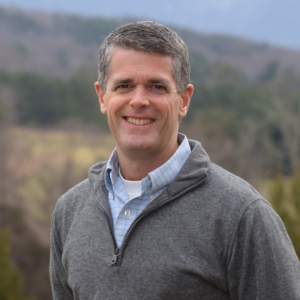 Michael Reilly
Michael Reilly
Michael Reilly is co-founder and executive director of Virginia Foodshed Capital, a non-profit whose mission is to provide financial stewardship for small-to-mid-scale organically run farms and food enterprises in the local foodshed, including both urban and rural areas. It does so through a 0% loan program called SOIL and through financial training. The organization began in 2018 as a Slow Money program in the Richmond/Charlottesville area but expanded statewide in 2019. Michael started his career in banking and then worked for 15 years as an executive in the broadcast TV business before turning his attention to entrepreneurship and local food advocacy.
Michael has served on the board of the Virginia Association for Biological Farming since early 2019. He is also on the board of Grow Ahead, a nonprofit that teams up with farmer organizations throughout the world to support climate resiliency initiatives through crowdfunding. Michael also serves on the board of Market Central, which helps run the Charlottesville farmers markets. He is on the planning team for the Charlottesville Food Justice Network, and he serves on the steering committee for Virginia Interfaith Power & Light, a collaborative of faith communities dedicated to advancing climate justice throughout the state. Michael earned an undergraduate degree from Yale University, and a Masters degree from Columbia University. He lives in Charlottesville with his wife and four children.
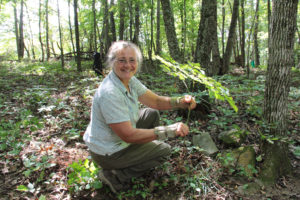
Michelle Pridgen
Michelle Pridgen grew up in the Research Triangle area of North Carolina. She earned a BA in East Asian Studies from UNC-CH and an AA in General Agriculture from NCSU. She worked as an extension technician doing vegetable research and as part of the horticultural team at WRAL while living in Raleigh. Michelle and her husband Don bought land in Grayson County in 1984 that would become Windyhill Farm. They formed Windyhill Logworks and traveled the country building log homes for 20 years. Michelle was hired as the manager of the Independence Farmers Market in 2013. She continues in that position and grows produce and flowers for the Market, restaurants and wholesale. Her goal is to help increase the success of local agriculture. To that end she has served on various boards, helped establish the Grayson County Fair, and has worked with the Blue Ridge Woodland Growers and ASD’s Herb Hub to determine the feasibility of growing forest botanicals, like black cohosh. Michelle was among the first forest farmers to process and sell black cohosh at the Appalachian Harvest Herb Hub in 2017, and continues to steward black cohosh on her forest farm today.
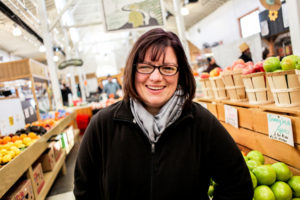
Monica Pape
Monica Pape is the lead adviser for The Accidental Agronomist. She currently works with farmers across the country giving them a better understanding of their soil tests to help them implement sensible fertilization and management plans that produce higher yielding crops while saving money and being environmentally sustainable. Taking a simple approach and achieving successful results, has positioned The Accidental Agronomist as a trusted resource for farmers.
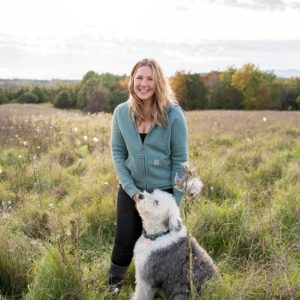
Nichki Carangelo
Nichki Carangelo is a partner at Letterbox Farm Collective in Hudson, NY, where she manages livestock and retail sales. She is also the author of “Raising Pastured Rabbits for Meat,” a comprehensive guide for small-scale, humane and profitable rabbit production.
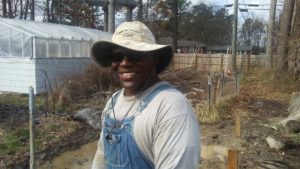
Patrick Johnson
Patrick Johnson has been involved in sustainable agriculture and sustainable living movements for over thirty years.His experience includes, managing a demonstration farm; working as an extension agent with the Peace Corps in the Philippines; and working as a Small Farm Agent with Virginia State University. He has been a speak and numerous conferences including SARES National Hispanic Conference, 2018 Black Farm and Urban Agriculturalist Conference and Virginia State’s Small Farm Outreach Conference. He teaches the permaculture for the Urban Agriculture Class at Virgina State University.Patrick currently is a fruit and vegetable farmer and permaculture/sustainable agriculture consultant. He holds a Masters Degree in International Agriculture and Rural Development from Cornell University. He is also a certified permaculturalist.

Paul Gallione
“I have been actively engaged in agriculture since the early 70’s, growing vegetables with my grandfather. Once older, I started working as a field hand on a large fruit and vegetable farm in northern New Jersey. This experience led to a degree in Agronomy from SUNY Morrisville in 1981. Since then I have worked in research at the Connecticut Ag Experiment Station and as an agricultural service provider, and operated two small organic farms, initially in North Branford, Connecticut and later in Waldo, Maine. At Moosehead Trail Farm I produce greenhouse tomatoes, hydroponic lettuce and basil, strawberries, and sweet corn, along with a mix of other vegetables and flowers to supply my farm stand. On the farm I utilize sustainable practices, including IPM, cover cropping, season extension, and hydroponics. Additionally, I have served as chairman on the Waldo County Soil and Water Conservation District Board, from 1998–2014.” I became a Certified Crop Adviser in March of 2017.
Paul began at Johnny’s in 2011 as Technical Services Technician for the Product Development team. In this capacity he responded to customers’ technical growing questions, maintained and updated the technical information available to our customers, and instructed Johnny’s staff regarding technical and product concerns. Soon after starting Paul was additionally tasked with the roles of Product Trial Technician in the Tools & Supplies area as well as for Cover Crops. More recently he has filled the role of Technical Advisor, assisting customers and staff with technical growing information. Now Sales Representative for the greater Central and Eastern seaboard states, growers in this important region are in good hands with Paul.
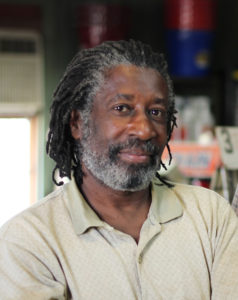
Renard Turner
After years of agricultural science and engineering studies in California, Renard Turner and his wife started Vanguard Ranch in Gordonsville VA in 1997 where they began raising heirloom breeds of sheep including registered Horned Dorsets and Karakuls. As part of a transition to breeding and nurturing healthy meat goats, they began raising organic produce and marketing locally. For the past 10+ years, Renard has operated the Vanguard Ranch Natural Gourmet food truck, providing an outlet for Vanguard’s natural, pasture-raised goat meat and squab, as well as organic vegetables and herbs. Renard and Vanguard Ranch have been featured in numerous publications including most recently the September 2019 issue of ACRES USA as well as a feature in the Virginia Cooperative Extension series “Soil, Conservation and Place”.
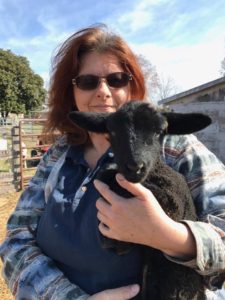
Resi Connell
Resi Connell has a varied background that includes education and experience in marine science, communication design, architecture, art, photography, education and multimedia development. Over the past 20 years she has focused her experience on developing marketing materials and websites, education outreach, distance learning applications, and alternative learning methods as well as teaching. Her career in developing websites, marketing outreach, and educational products spans several large government organizations including the State Department, NASA, Navy Medicine and NOAA and large not-for-profit organizations such as the American Chemistry Society as well as the small business sector.
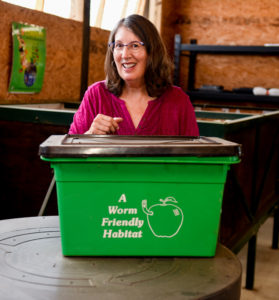 Rhonda Sherman
Rhonda Sherman
Rhonda Sherman has been providing education and technical assistance on vermicomposting and composting at NC State University for 27 years. A leading authority on vermicomposting, she organizes an annual conference on large-scale vermicomposting that draws participants from all over the world. Rhonda gives about 50 presentations annually, has conducted countless training courses and workshops, and has a variety of publications on composting and vermicomposting. Her new book is The Worm Farmer’s Handbook.
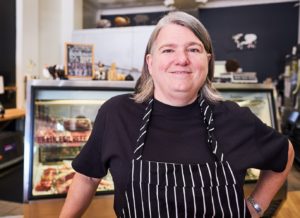 Tanya Cauthen
Tanya Cauthen
Tanya Cauthen discovered her love and admiration for quality meat at a carving station with her father when she was just six years old. Over and over, she approached the carving station with a polite request: “more, please.” And later, “red, please.” The attendants obliged, and little Tanya ate every morsel.
Tanya still knows and loves her meat. She and her trendsetting Belmont Butchery shop (established 2006 in Richmond, VA) have been featured nationally in Bon Appétit, Saveur, and Food & Wine Magazine. In 2017, she won the competition on The Food Network’s ‘Chopped.’
But Richmond already knew she was a star. Tanya’s pioneering efforts have created opportunities for a generation of meatmongers. She was “nose to tail” before it had that name. She’s a pre-foodie, pre-locavore, pre-Josh Ozersky admirer and a proprietor of meats and top-shelf ingredients, valuing quality and accessibility over all else. Now, it’s her customers who say, “more, please.”
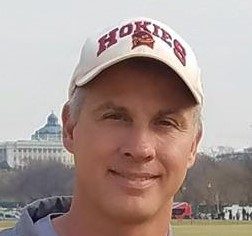 Dr. Thomas P. Kuhar
Dr. Thomas P. Kuhar
Dr. Kuhar is a Professor in the Department of Entomology at Virginia Tech, where his research and Extension efforts focus on the biology of agricultural pests and developing and evaluating sound integrated pest management solutions on vegetable and row crops as well as turfgrass. He has published over 120 peer-reviewed scientific journal articles, several book chapters and over 200 non-peer reviewed trade journal and Extension publications geared around insect pest management. He has advised over 20 graduate students during his 18-year tenure as a faculty member. Dr. Kuhar has also served as President of the Eastern Branch of the Entomological Society of America and has been an associate editor for three entomology journals Journal of Integrated Pest Management, Plant Health Progress, and Arthropod Management Tests.
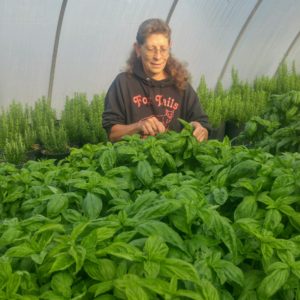 Tenley Weaver
Tenley Weaver
Tenley Weaver entered market-gardening as a career in 1990 with a passion for biological farming and a healthy appetite for fresh delicious foods. She currently owns and operates TruFood Growery in Floyd, a solar-powered farm cultivating specialty vegetables, small fruits and culinary herbs in hoophouses and field production.
In pursuit of an efficient marketing plan for her produce and that of neighboring farms, Tenley founded Good Food-Good People in 1998. Superseded by her efforts as Loca-Motive Aggregator in 2017, this distribution network currently connects over 30 neighboring small farms and food producers to Roanoke wholesale buyers and a successful CSA venue sponsored by LEAP and Carilion Care. Aggregated farm products are delivered year ‘round and include fresh fruits and vegetables, grass-pastured eggs, cheeses and meats, plus a smorgasbord of value-added foods from local and regional businesses.

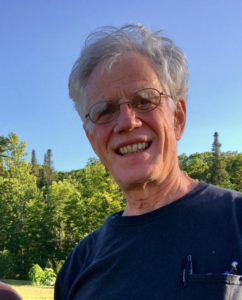 Tony Martin
Tony Martin

